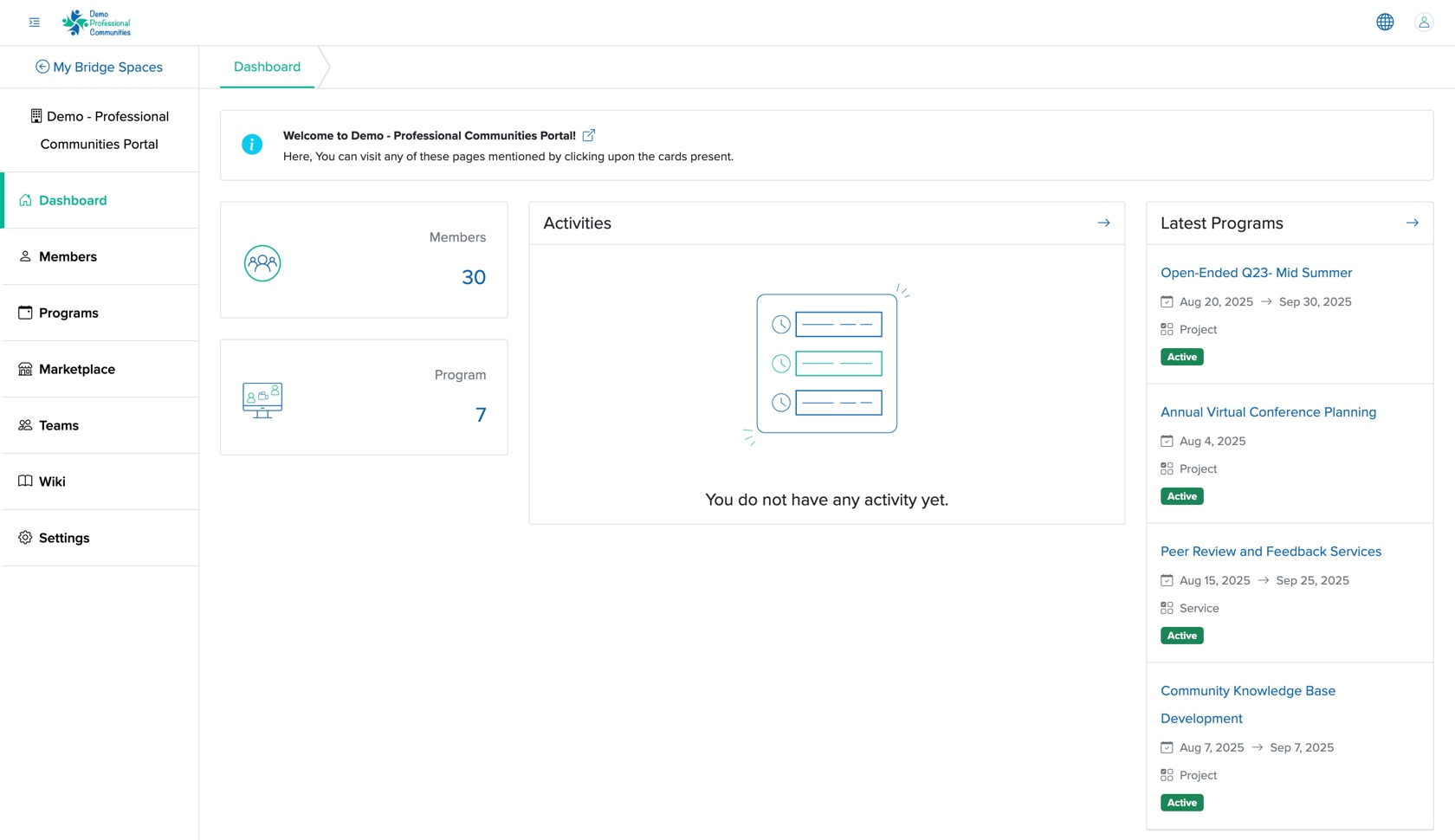
When we click the Programs menu from the Manager Control Panel dashboard, as shown in Figure 1 above, the system redirects us to the program list page, as shown in Figure 2 below.
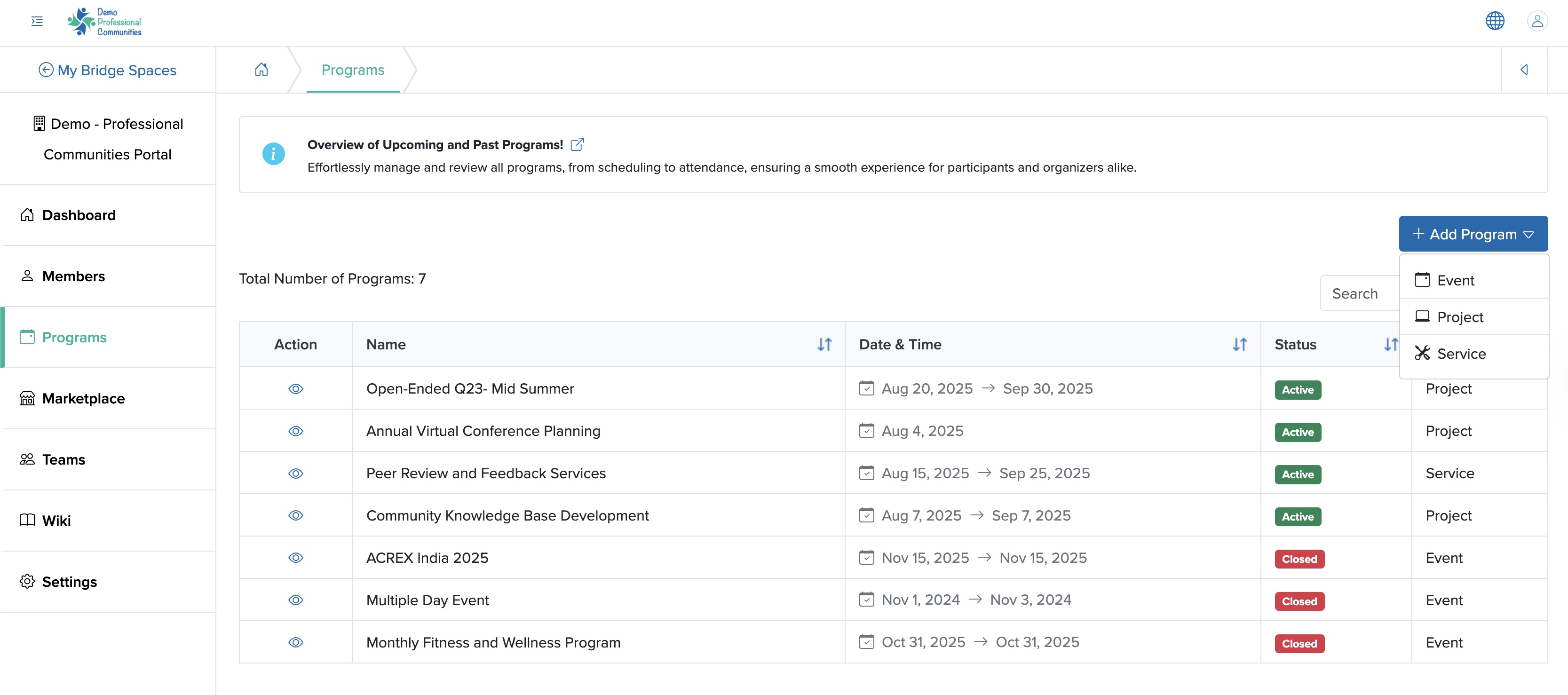
Add Project
We can click the + Add Program button at the top right of the program dashboard screen, as shown in Figure 2 above, select the Project option from the dropdown menu, as shown in Figure 2 above, and the project add screen opens, as shown in Figure 3 below.
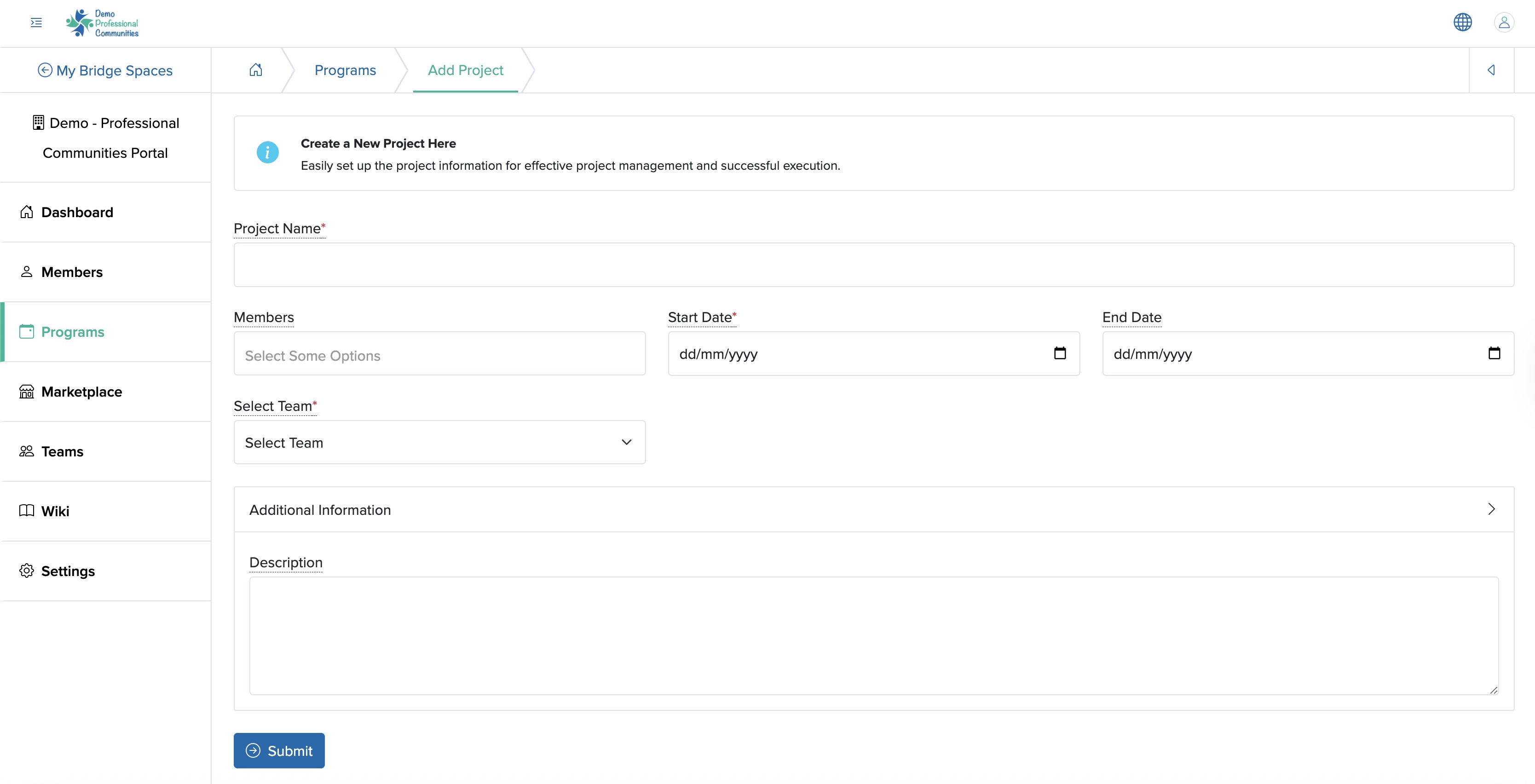
We can enter the details below and click the Submit button to create a new project, as shown in Figure 3 above. The details that can be added are:
- Project Name (Textbox - Mandatory): Title of the Project
- Start Date (Date Picker - Mandatory): We can select the date when the project will begin
- End Date (Date Picker - Mandatory): We can select the date when the project will be completed
- Select Team (Select Box - Mandatory): We can select the team for the project. If the desired team is not listed in the drop menu, we can select the option to Add New Team, and the fields to add a team will appear, as shown in Figure 4 below
- Description (Text Area - Optional): We can provide an overview or key details about the program to members associated with the program
As shown in Figure 3 above, we can click the Back icon at the top right of the screen to return to the program list page.
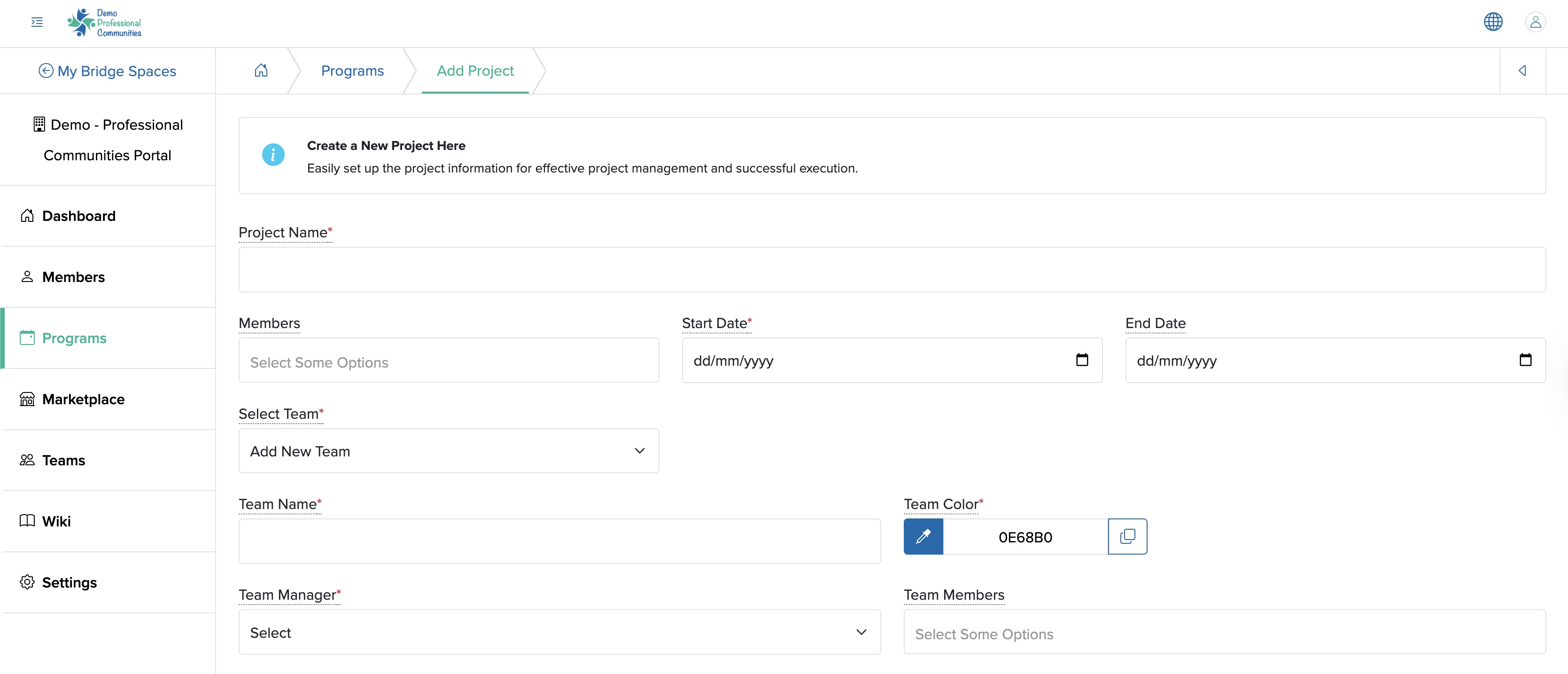
Individual Project Dashboard
We can click the View icon associated with each project on the action column of the respective project, as shown in Figure 2 above, and the project dashboard opens, as shown in Figure 5 below.
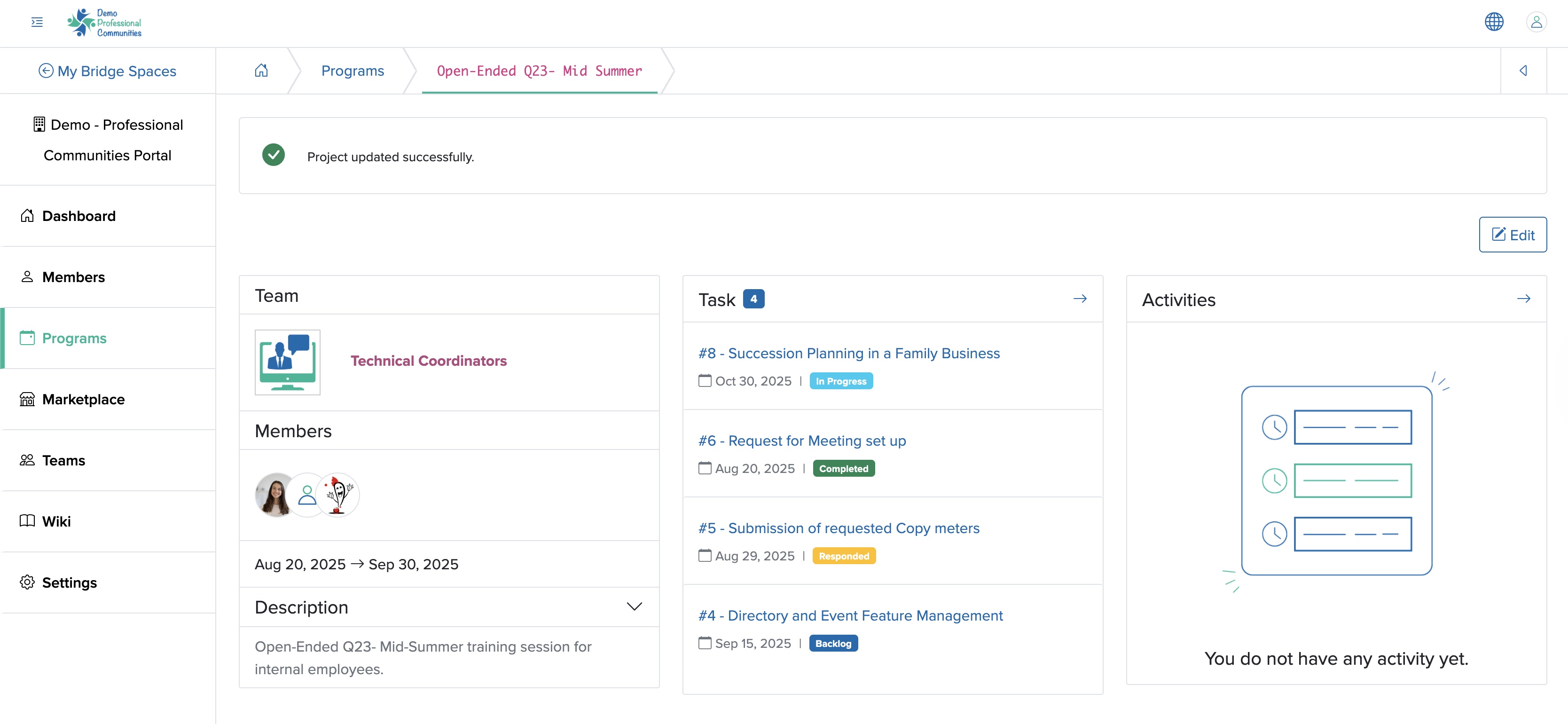
The project dashboard consists of three sections.
The left section displays the team name and logo at the top, followed by team members' details and the project timeline. The bottom part of the left section displays the project description, as shown in Figure 5 above.
The middle section displays the tasks associated with the project. We can also view the task list by clicking the arrow on the task header, as shown in Figure 5 above.
The right section displays the activities related to the project. We can also view all the activity list by clicking the arrow on the activity header, as shown in Figure 5 above.
Edit Project
We can click the Edit button on the top right side of the project dashboard screen, as shown in Figure 5 above, and the project edit page opens, as shown in Figure 6 below.
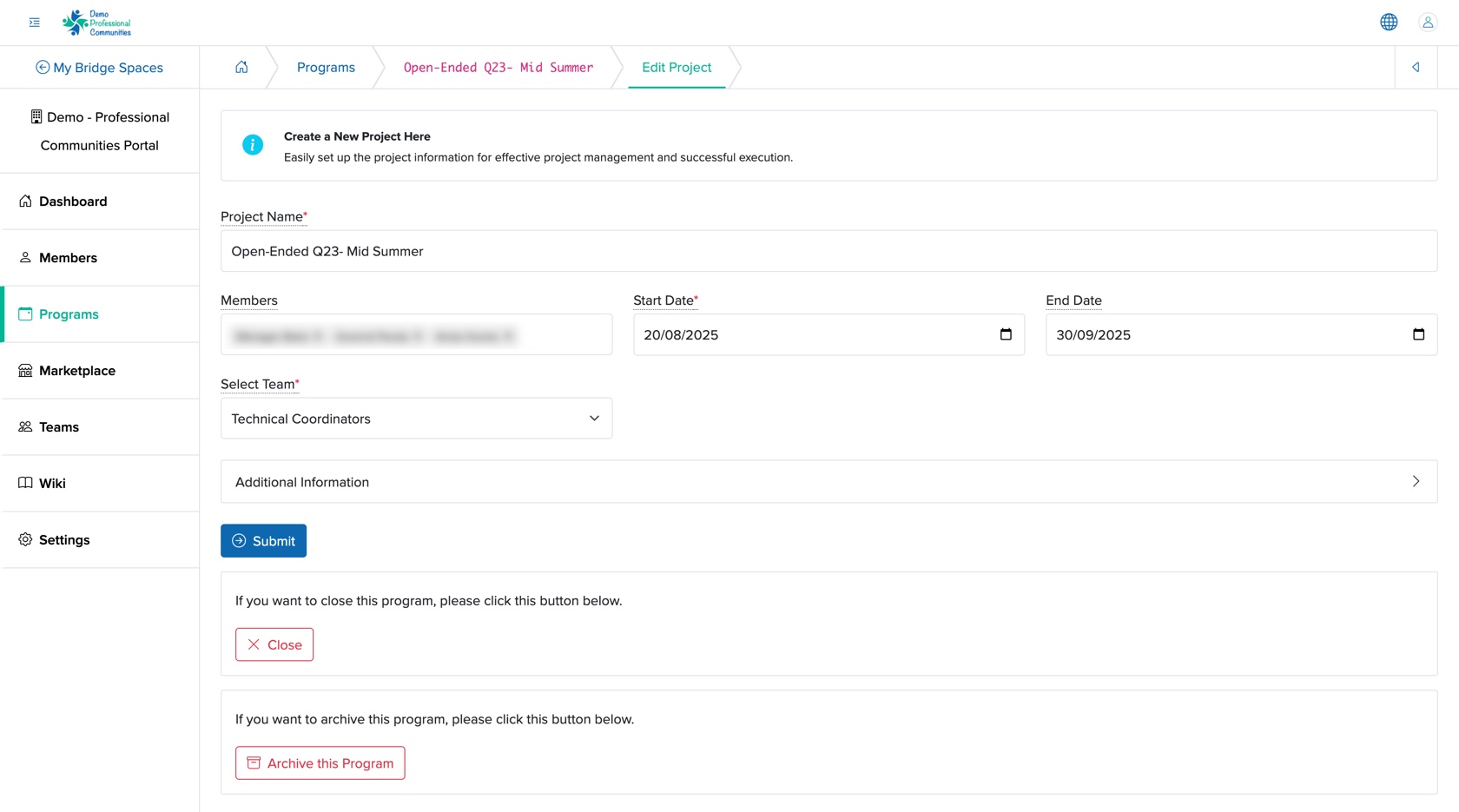
We follow a similar process to edit a project as we do to add one. We can follow the steps mentioned in Add Project to edit the project details.
We can close the project by clicking the Close button at the bottom of the Edit Project screen, as shown in Figure 6 above.
We can archive the project by clicking the Archive this Program button at the bottom of the Edit Project screen, as shown in Figure 6 above.
Individual Project Task Dashboard
We can click the arrow on the task header on the project dashboard, as shown in Figure 5 above, and the tasks dashboard for the particular project opens, as shown in Figure 7 below.
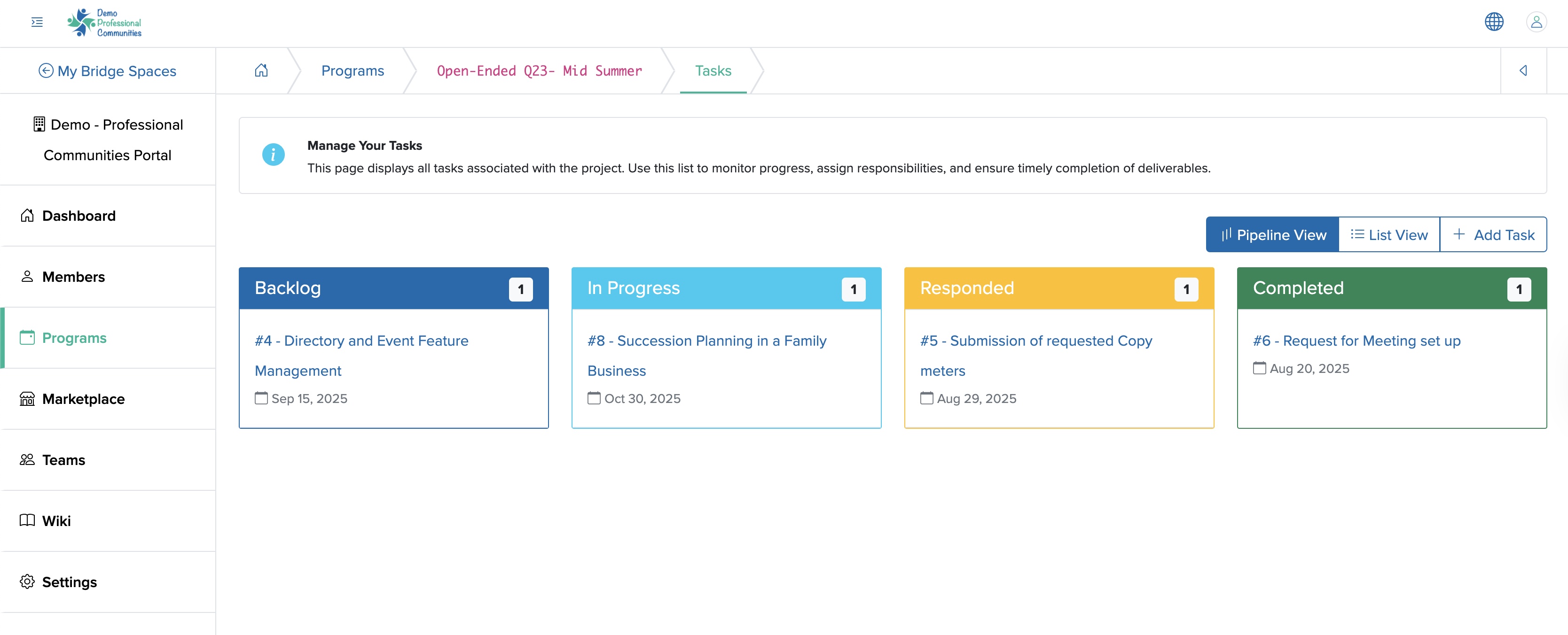
We can view the task dashboard in pipeline or list view by clicking the Pipeline or List buttons, as shown in Figure 7 above.
The pipeline view displays tasks in four different cards, categorized as 'Backlog', 'In Progress', 'Responded', and 'Completed', each with a distinct color, as shown in Figure 7 above.
The list view displays tasks in a tabular format detailing the 'Action', 'Title', 'Status', and 'Timeline', as shown in Figure 8 below.
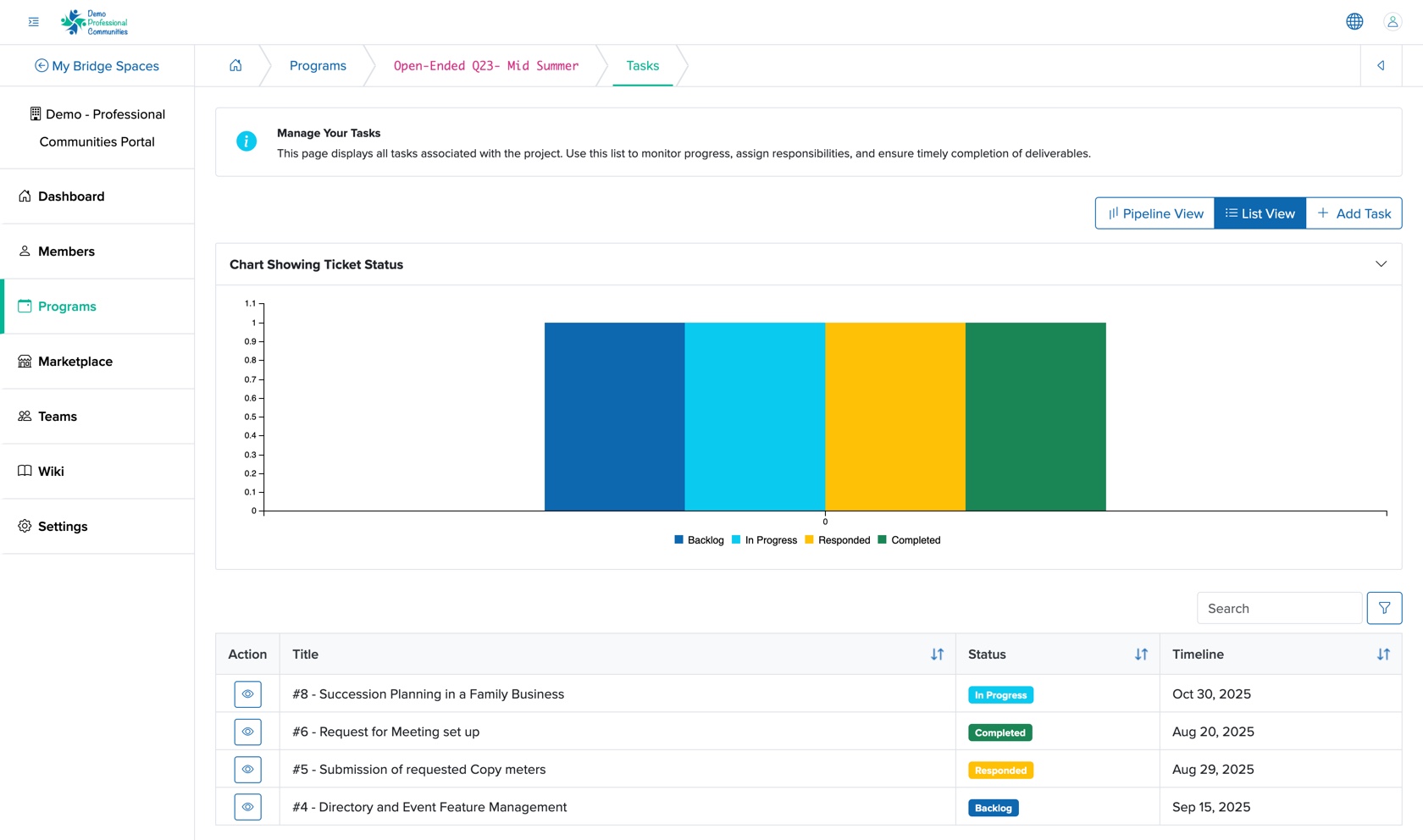
We can click the arrow on the header Chart Showing Ticket Status to view the ticket status chart, and the section expands to display the chart, as shown in Figure 8 above.
We can filter the table data by clicking the arrow associated with the header row of the table, as shown in Figure 8 above.
We can enter the details in the filter textbox and click the filter button just above the table header to filter the data, as shown in Figure 8 above.
We can view the status of the tasks in the status column of the table, as shown in Figure 8 above.
Add Task to Project
We can click the + Add Task button on the task dashboard of the particular project, as shown in Figure 7 above, and the add task page opens, as shown in Figure 9 below.
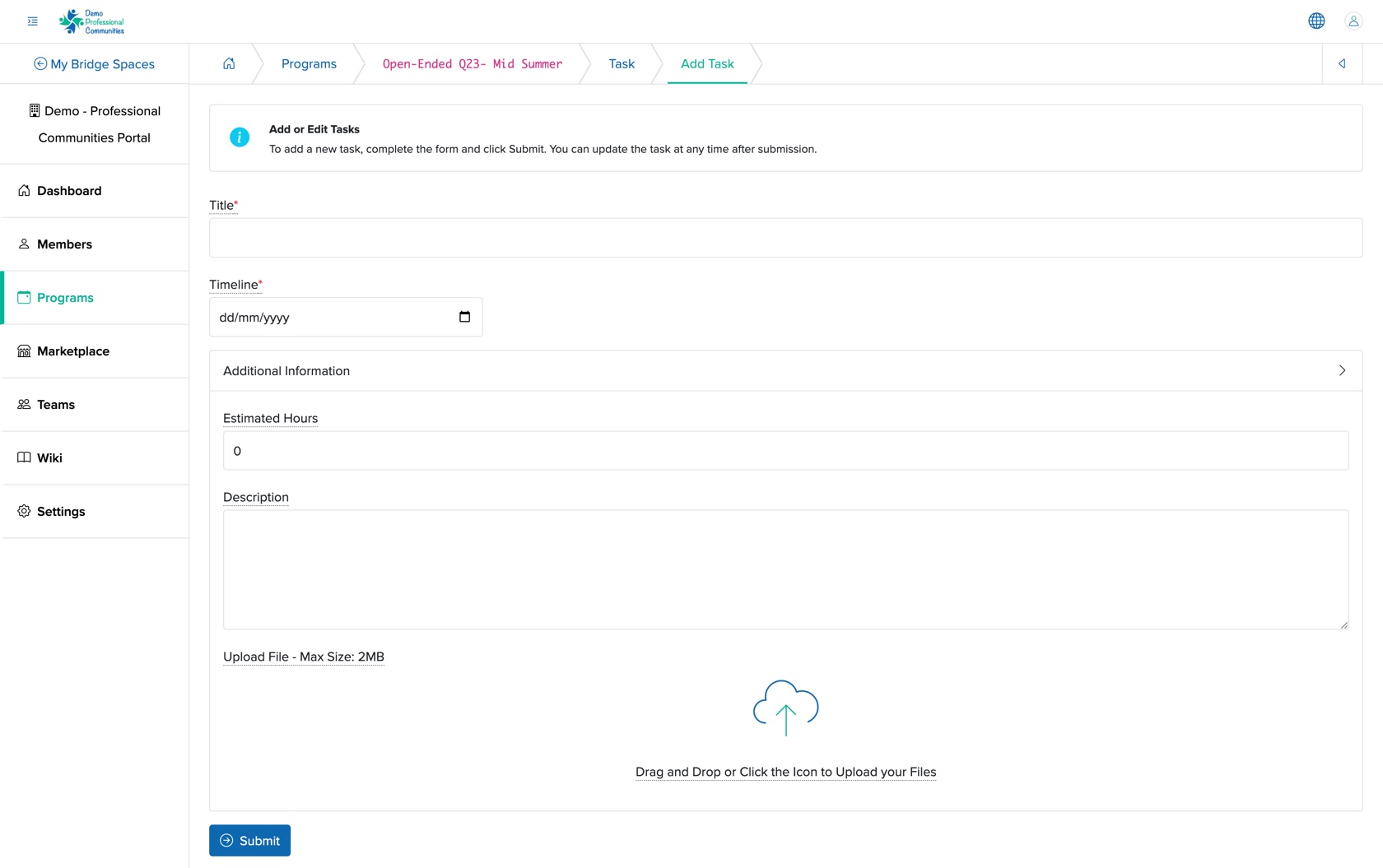
We can enter the details below and click the Submit button to create a new task, as shown in Figure 9 above. The details that can be added are:
- Title (Textbox - Mandatory): Title of the Task
- Timeline (Date Picker - Mandatory): We can select the expected date for the completion of the task
- Estimated Hours (Select Box - Optional): We can select the expected duration required to complete the task
- Description (Text Area - Optional): We can provide an overview of the tasks
- Upload (File upload - Optional): We can upload any document related to the task with a maximum limit of 2 MB
Once we create a task, it will be marked by default as Backlog task in the task list page.
View Task Log
We can click the Task Title if we are in the pipeline view of the task dashboard, or we can click the View icon associated with the individual task row if we are in the list view of the task dashboard, as shown in Figure 8 above. The particular task log page will open, as shown in Figure 10 below.
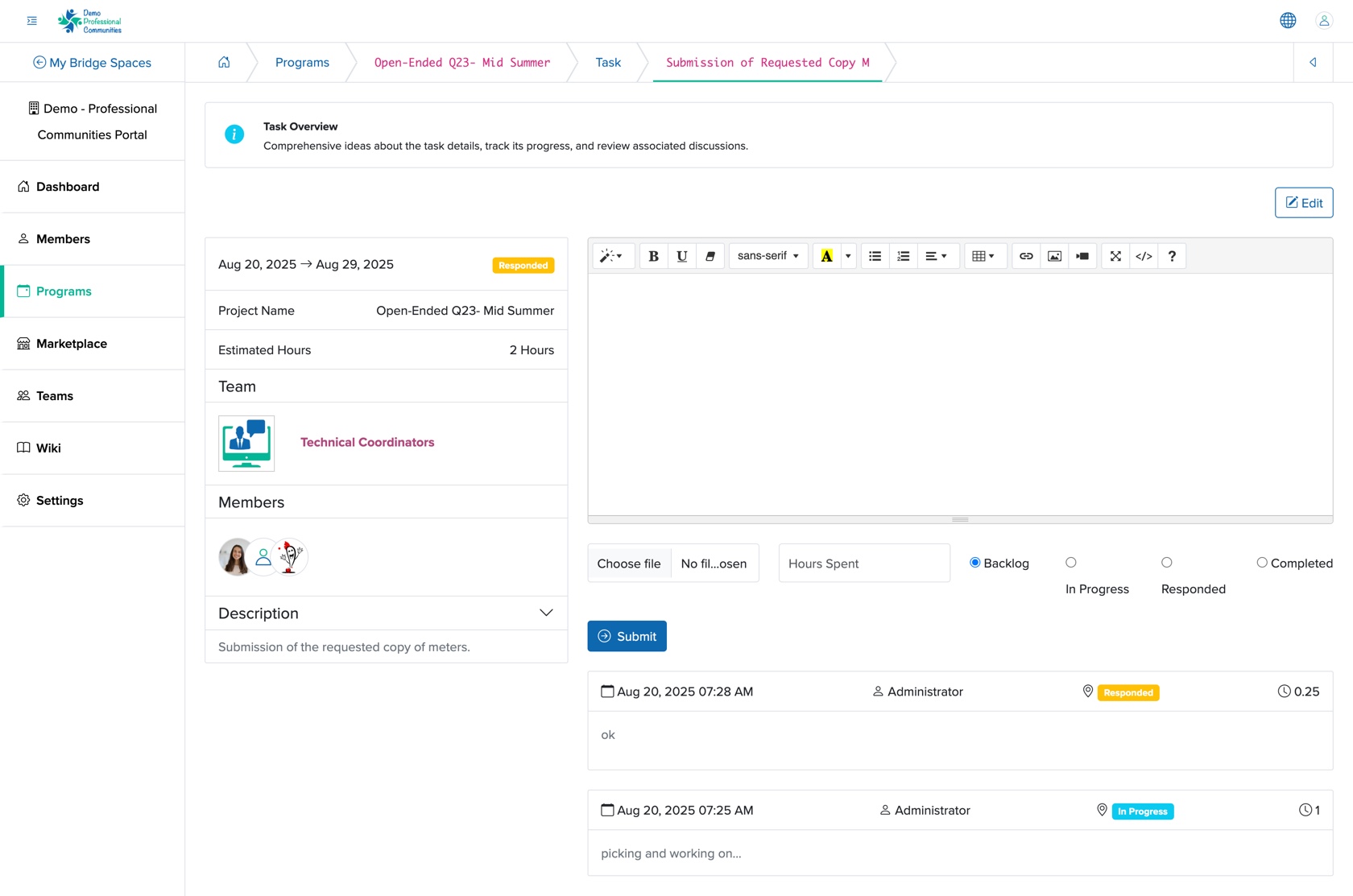
The task log screen consists of all vital information about the particular task on the left side and an add log section on the right side, as shown in Figure 10 above.
To add a new log to the task, we can enter the details in the Text Editor on the right side of the screen and click the Submit button. To change the task status, click the Task Type radio button just above the Submit button, as shown in Figure 10 above.
Edit Task Under a Project
We can click the Edit button on the top right side of the task log screen, as shown in Figure 10 above, and the Edit Task page opens, as shown in Figure 11 below.
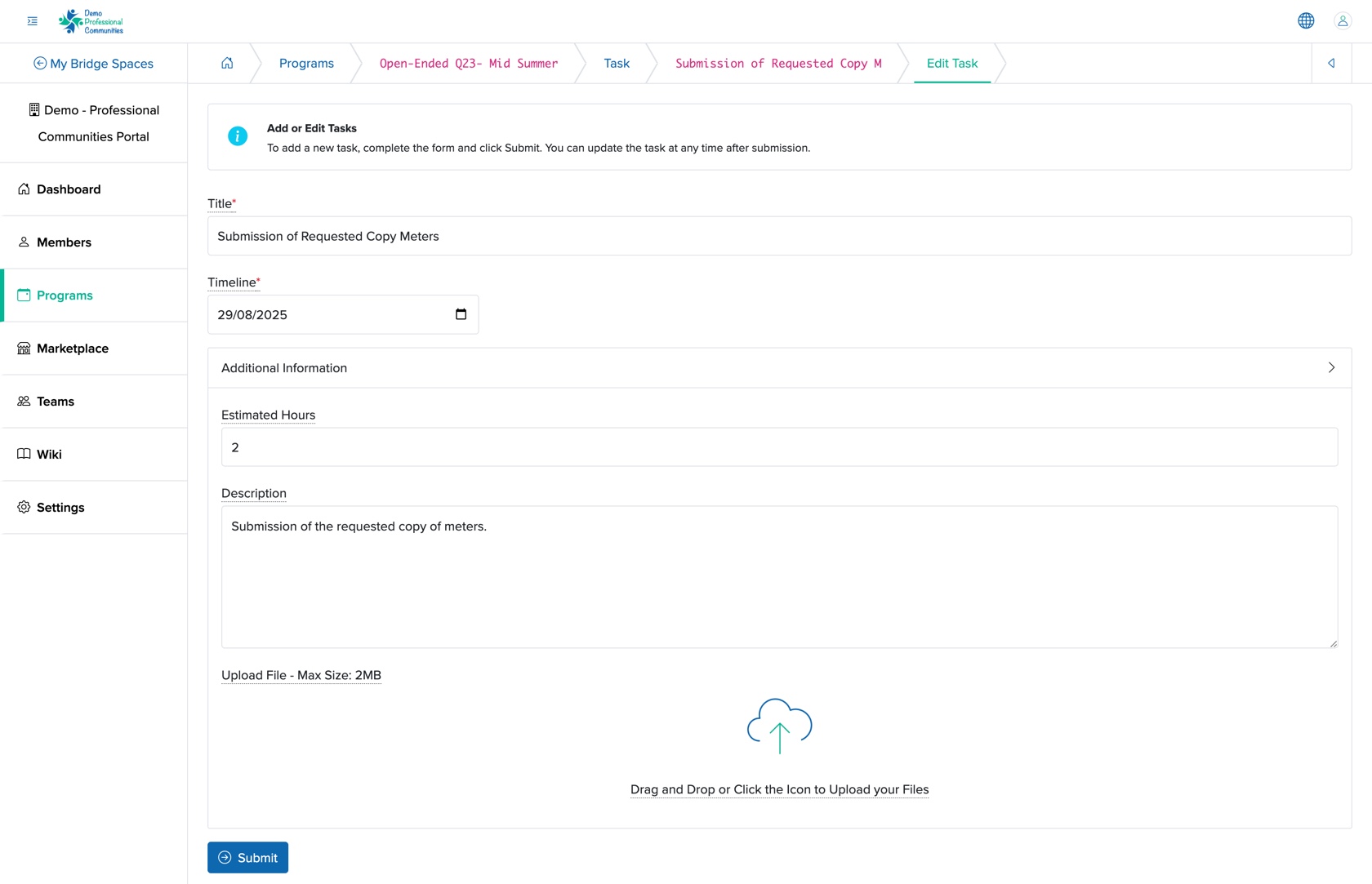

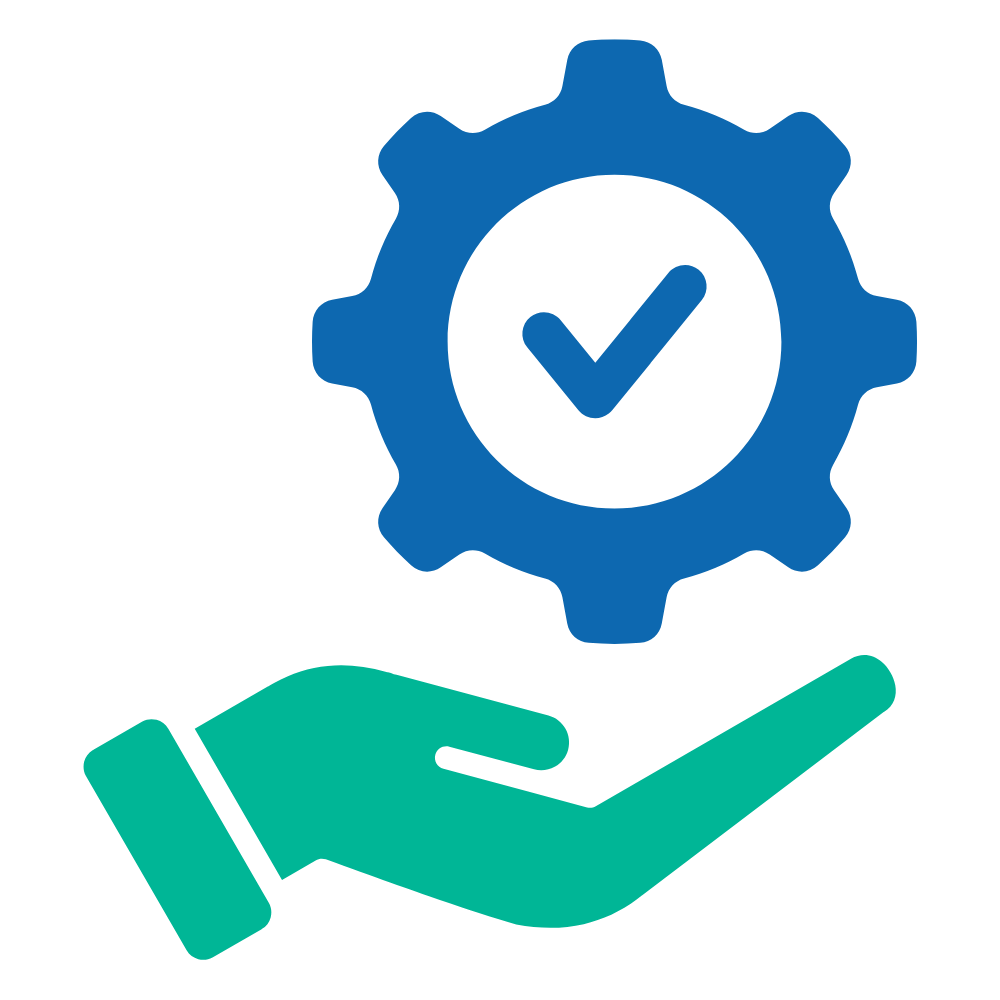 Batoi Support
Batoi Support